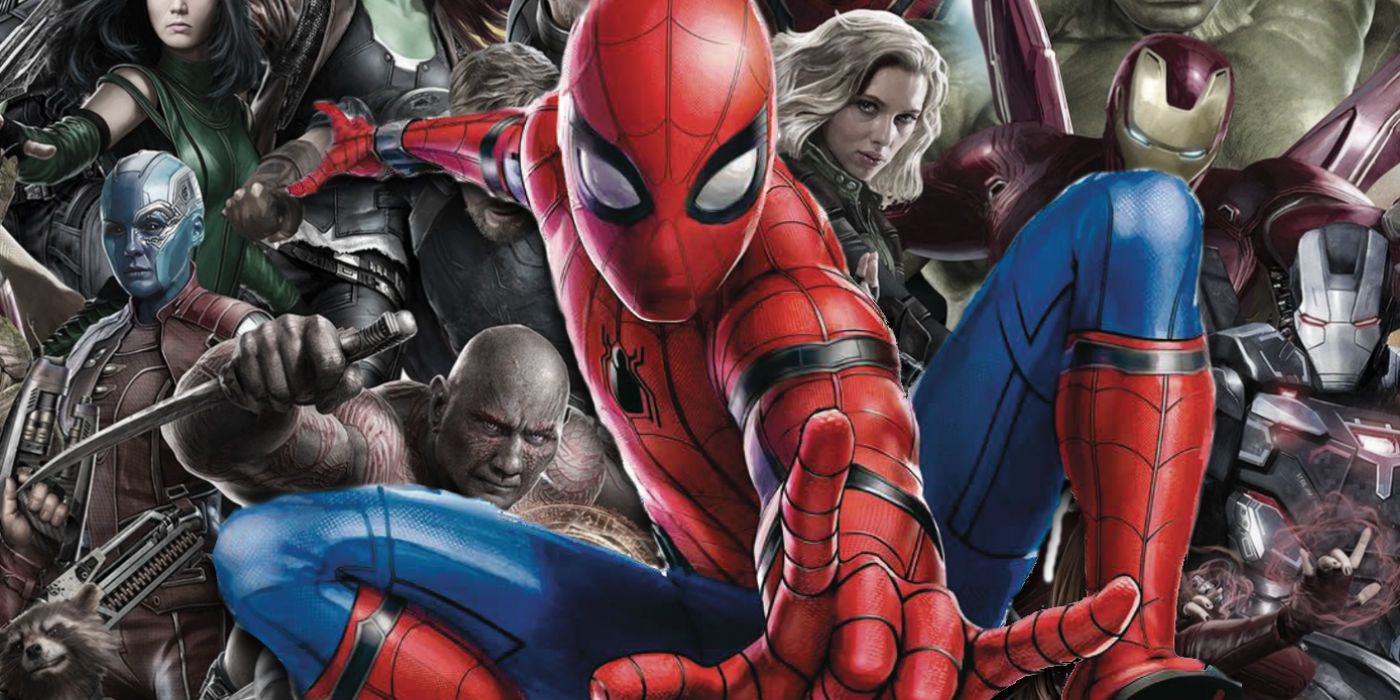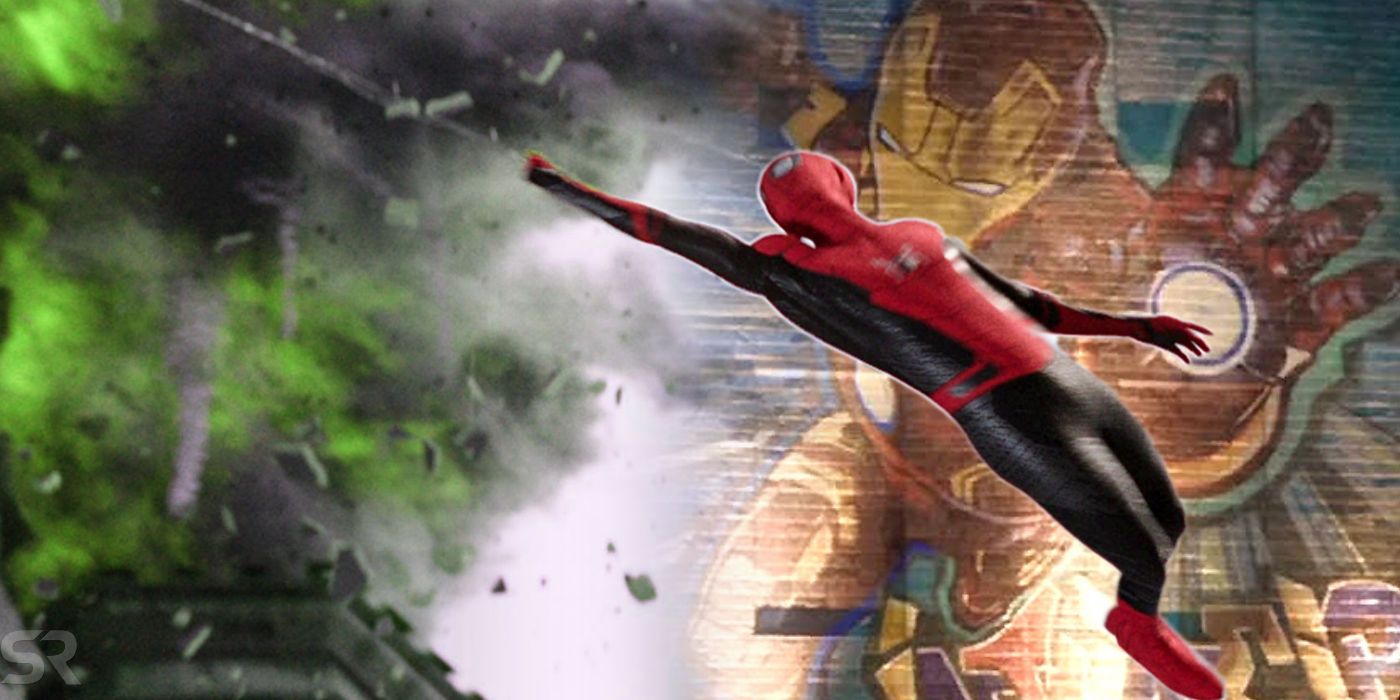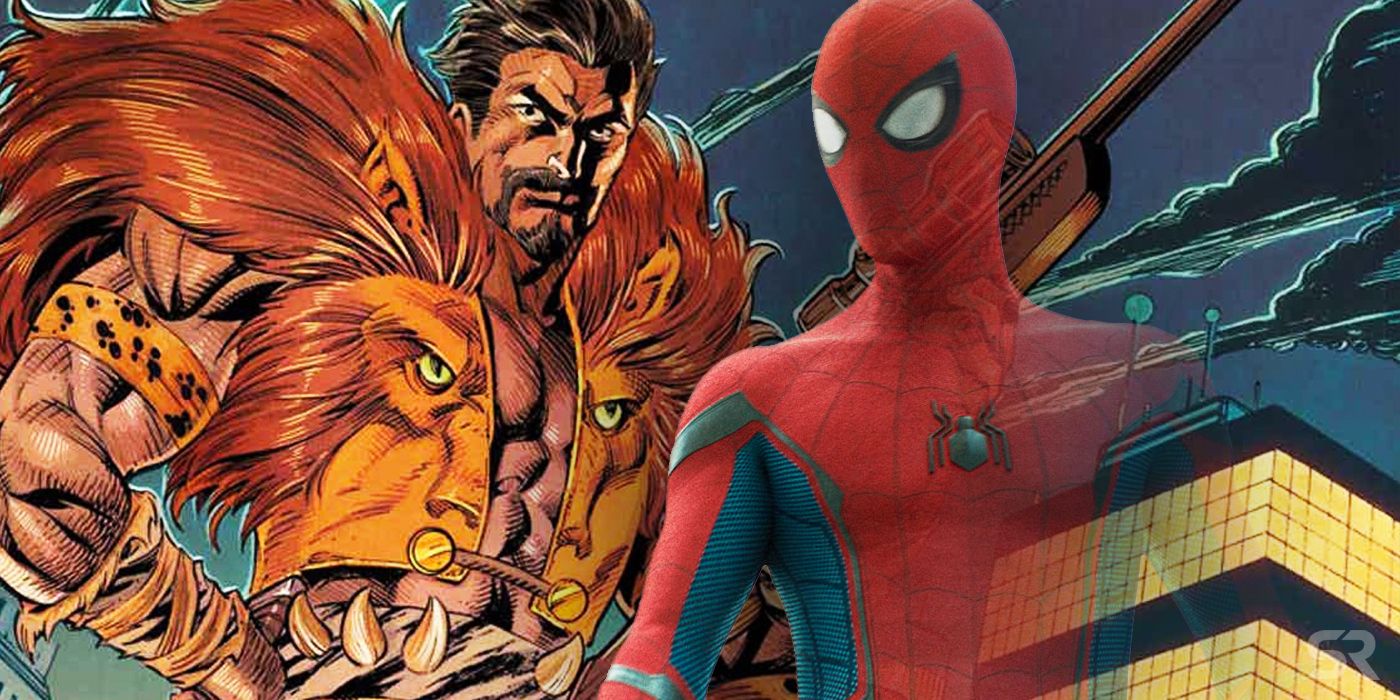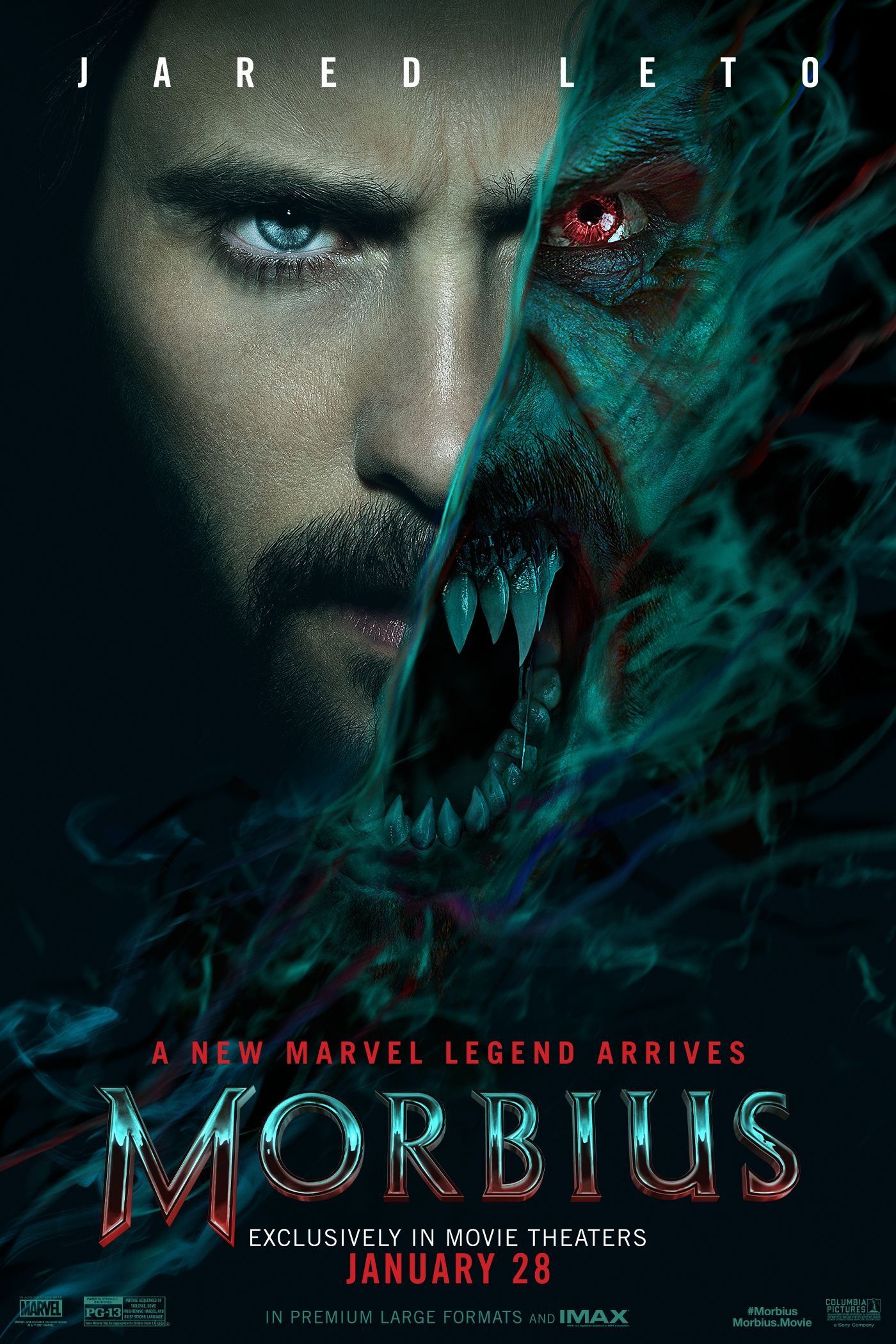Spider-Man: Far From Home’s ending may have been a cliffhanger, but it provides an easy way for him to leave the Marvel Cinematic Universe behind in future films. It’s a confusing time for Spider-Man fans right now. An unprecedented deal between Sony Pictures and Marvel Studios saw the wall-crawler begin his crime-fighting career anew onscreen in 2016, joining the MCU in Captain America: Civil War. With Tom Holland donning the iconic costume, Peter Parker’s career flourished across five movie appearances in a cinematic universe teeming with superheroes.
But 2019 has seen relations between the two companies break down after Disney demanded more of the box-office profits for Spidey films during renewal negotiations. At present, every report indicates that both studios have parted ways, meaning that Spider-Man is set to leave the MCU. This comes at a critical juncture for both studios, since Sony is looking to push forward with its own Spider-Man movies, such as Morbius, Venom 2 and the Spider-Verse saga. Conversely, the MCU is entering an all new phase, with an eclectic mix of new properties and few of its familiar faces. And while Tom Holland is set to stick around, his Spider-Man’s future looks very uncertain, given Far From Home’s jaw dropping climax.
Alone, this suspenseful finale might appear to be a very sticky problem for both studios to tackle going forward. After all, Holland’s Spidey was closely knitted into the fabric of the MCU, and was also primed to be a central figure moving forward. However, Spider-Man: Far From Home's ending actually contains the potential to reconcile the Disney/Sony situation in a very simple way.
What Happens In Far From Home's Twist Ending
Up until its infamous post-credit scene, Spider-Man: Far From Home appears to be finishing in spectacular – yet somewhat typical– Spidey fashion. Moreover, across the movie’s last third, Peter realises the extent of Mysterio’s (Jake Gyllenhaal) manipulations, and the hero strikes back, saving London and defeating Mysterio (who dies by his own hand). Peter also wins the girl of his dreams, and returns home triumphant. Yet Spider-Man's subsequent web-slinging date with MJ (Zendaya) takes a surprising twist when they reach Madison Square Gardens, and see a public news report.
It transpires that Quentin Beck’s agents have released secretly recorded and doctored footage of Spider-Man’s fight with Mysterio, which convincingly claims that Spidey was the mastermind behind the Elemental threat and that Beck was the hero. Most shockingly of all, Mysterio posthumously announces Spider-Man’s secret identity to the world.
One the one hand, this is a rather traditional development for Peter. In a resurgence of that typical Parker bad luck, the public is likely to fear and mistrust Spider-Man again – thanks in part to the ever-sensationalizing J. Jonah Jameson. But the unveiling of Spidey’s secret is a key issue, since anonymity is one of Peter Parker’s defining characteristics. Spider-Man’s duality is such an endearing and compelling part of his appeal that Marvel Comics have rarely dared to tamper with it. Indeed, it’s so enduring that, until Far From Home, every prior Spider-Man movie had followed suit.
This rare unmasking could utterly reshape the Spidey series, due to the effects it would have on Peter relationships, home life and education, not to mention the backlash that could arise after his "outing" from law enforcement, the media, and vengeance-filled super-villains and criminals. As such, something so potentially transformative to such a beloved superhero franchise needs to be given the weight that it deserves. Thankfully, there is a way to accomplish all of this.
Why It's A Great MCU Ending For Spider-Man
We can only guess as to what the full impact of Spider-Man: Far From Home’s mid-credits scene will be, since the film ends with Spider-Man merely reeling in horror – and that is a good thing. By leaving Spidey at a crossroads like this, it means that it is far easier for Sony to determine the next steps in the series, instead of hastily retconning the plot or rebooting entirely. Though Peter could very well accept Mysterio’s checkmate and go public, his comic book history – and the Sony/Marvel breakup – indicate that Sony is unlikely to opt for this.
Indeed, foregrounding Peter’s newfound celebrity invites audiences to consider the film’s ties (or lack thereof) to the wider world of the MCU. Plus, it would be somewhat out of character for Peter to embrace that celebrity because, across his mythos, he has nearly always denied that he was Spider-Man when similar circumstances arose. The only exception to this was in the Civil War comic event, where Peter was forced to go on the run to avoid unwanted attention. And this kind of plot could be the key to his cinematic future.
In the same way that Batman disappeared after The Dark Knight's final battle, seeing Spider-Man go to ground after his identity has been leaked would be a clever way to capitalize on Far From Home’s ending. It not only makes logical sense for Peter to do this to protect himself and his loved ones, but this story would also complement the approach that has been established thus far. After all, Spider-Man: Homecoming began the current series without the kind of immediate, city-threatening stakes that the hero has been known to face in his films. With Peter on the run, helping people if he can but trying to avoid drawing attention to himself, it means that the scope of the movie is smaller and more personal, and therefore its lack of extraneous Marvel references is justified.
Similarly, this narrative is something that the MCU could utilize as well, if it chose to do so. If new instalments are set around New York close to Far From Home’s time frame (such as Doctor Strange in the Multiverse of Madness) it would be very easy for glimpses of pre-existing footage or images of Holland’s Peter to appear in the background – on wanted posters, for example – to signpost that, where the MCU and its heroes is concerned, Spider-Man is simply MIA.
It Perfectly Sets Up Kraven & Spider-Man's Future
If Spider-Man 3 follows through on this storyline of Peter going to ground, then it would also pave the way for a famous Spider-Man villain to make an effective debut. Moreover, with this new and delicate status quo in place, Kraven the Hunter would be a fitting antagonist for the film, potentially manifesting as a bounty hunter hired to bring the unmasked Spidey in by super-villains or law enforcement officials. Alternatively, Kraven could well appear as the traditional, deluded big game hunter exploiting an opportunity.
Indeed, the prospect of an unrelenting villain pursuing a vulnerable Peter Parker is undoubtedly compelling. It’s even more so when we consider that, aside from his dalliances with the Sinister Six, Sergei Kravinoff’s rivalry with Spider-Man evolves into a highly charged vendetta, borne out of his warped sense of honour, pride and spiritualism. Coupled with his use of handheld weaponry, such as knives, spears and nets, the inclusion of Kraven the Hunter would complement this renewed, grounded approach to Spider-Man and his world without the influence of the wider MCU.
Similarly, depending on the movie’s approach, the inclusion of Kraven the Hunter could continue the new Spider-Man series’ investigation of current themes through previously un-adapted Spidey villains. If Vulture (Michael Keaton) drew upon the disaffected working classes of today, and Mysterio represented the dangers of demagogues and fake news, Kraven’s plot could very well explore trophy hunting and environmentalism – if he is chosen that is. Tom Holland and Jon Watts have expressed a strong interest in bringing Kraven to the big screen, but there’s little to suggest what plans are being made for Spider-Man’s future following the divorce of Marvel Studios and Sony Pictures. However, it is relieving to note how many exciting opportunities there are for Spider-Man’s cinematic future after Spider-Man: Far From Home. Indeed, it could be an thrilling few years for fans of Tom Holland's Spider-Man – if the right creative decisions are made.





